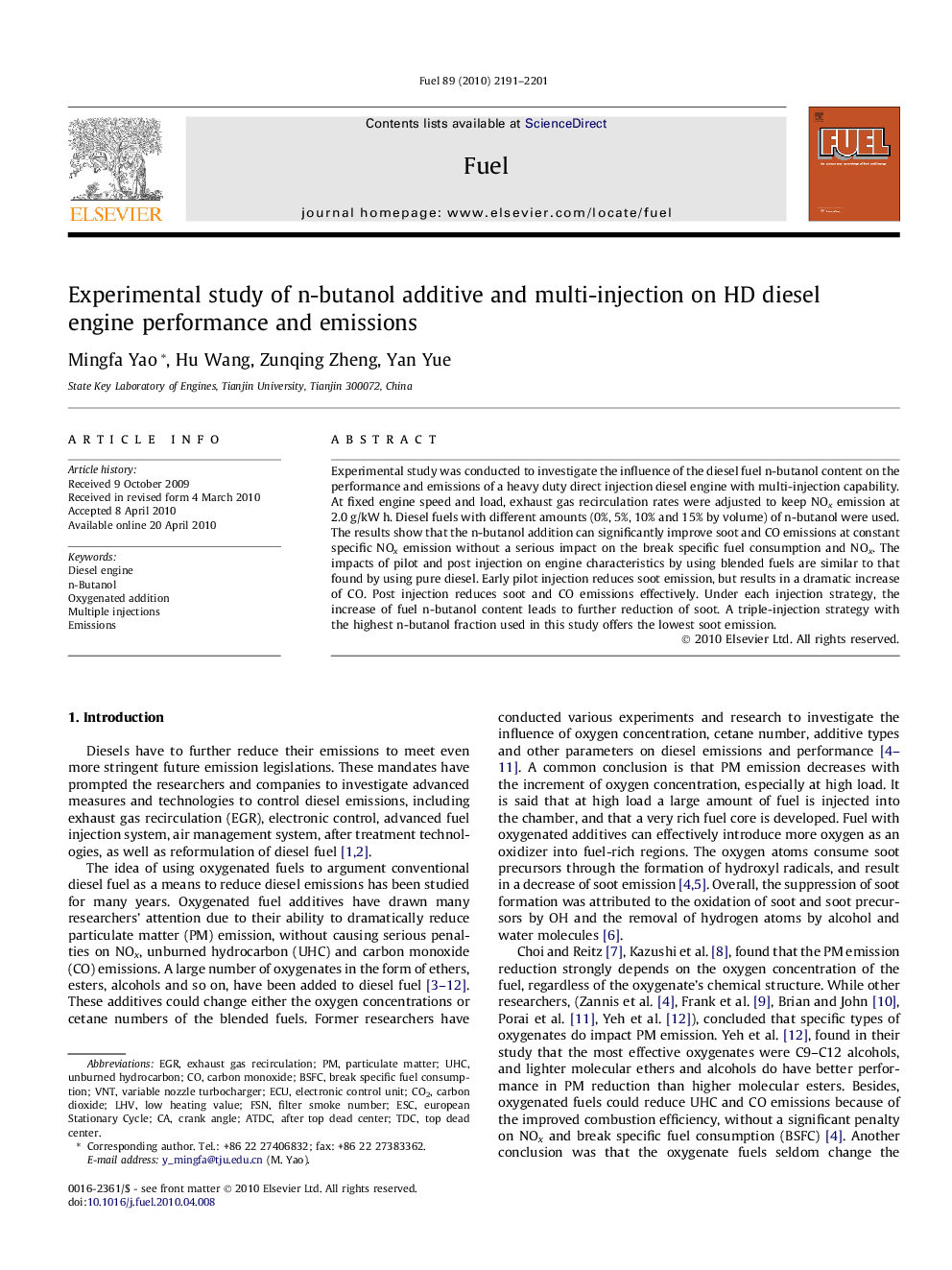| Article ID | Journal | Published Year | Pages | File Type |
|---|---|---|---|---|
| 207044 | Fuel | 2010 | 11 Pages |
Experimental study was conducted to investigate the influence of the diesel fuel n-butanol content on the performance and emissions of a heavy duty direct injection diesel engine with multi-injection capability. At fixed engine speed and load, exhaust gas recirculation rates were adjusted to keep NOx emission at 2.0 g/kW h. Diesel fuels with different amounts (0%, 5%, 10% and 15% by volume) of n-butanol were used. The results show that the n-butanol addition can significantly improve soot and CO emissions at constant specific NOx emission without a serious impact on the break specific fuel consumption and NOx. The impacts of pilot and post injection on engine characteristics by using blended fuels are similar to that found by using pure diesel. Early pilot injection reduces soot emission, but results in a dramatic increase of CO. Post injection reduces soot and CO emissions effectively. Under each injection strategy, the increase of fuel n-butanol content leads to further reduction of soot. A triple-injection strategy with the highest n-butanol fraction used in this study offers the lowest soot emission.
